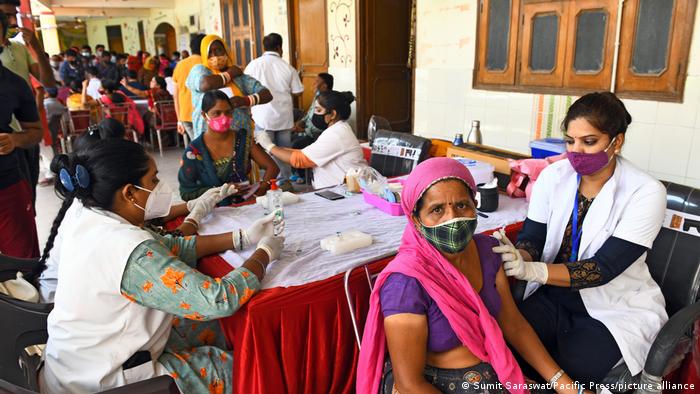
New Delhi: India has seen a significant dip in its coronavirus caseload over the past few weeks. However, health care workers and policymakers are warning of a possible third wave during the winter months.
As of Monday, the country's active case count stood at 271,550, marking the lowest figure in 199 days.
The R number, which measures the rate of transmission, also went down from 1.17 in August to 0.92 in mid-September. Meanwhile, the capital, New Delhi, recorded just five COVID-related deaths last month, according to official figures.
Some major states have remained pockets of concern. "India is a very diverse country with socioeconomic variations," Dr. Rakesh Varma, a director at the Directorate General of Health Services, told DW.
While New Delhi has recorded relatively few deaths and a low rate of infection, the southern state of Kerala is seeing a high number of new infections, he said.
Approximately 86% of all new infections have been reported by just five states: Kerala, Maharashtra, Tamil Nadu, Andhra Pradesh and West Bengal, with Kerala accounting for 59% percent of all new cases.
"It is hard to predict anything beyond the next 15 days, but there could be a third wave or more," general physician and epidemiologist Dr. Rachna Kucheria told DW. She added that the states of Mizoram and Kerala were hot spots for the virus.
Experts are also concerned about waning immunity. "Let's say we give it about six months or so, which is valid [for immunity to] respiratory viruses. By that count, if we take April as our peak, we are coming into October and that's six months. So even those people who had COVID-19 in April could become vulnerable in winter," Kucheria said.
Starting in October, India will also see its biggest festive season begin, with celebrations for major Hindu festivals such as Durga Puja, Dussehra and Diwali taking place.
Though various state governments have allowed celebrations to go ahead with strict protocols in place, experts say festivals give people the license to move around and mingle — conditions in which the coronavirus thrives. Many are worried that the celebrations could contribute to a spike.
"We, as health administrators and policy makers, are scared because people in their religious revelry forget virus-appropriate behavior. Also, in India, festivities don't last for 15-20 minutes — they last for a couple of hours. That's enough time for the virus to transmit from one person to another, and from one person to 10 people," Varma said.
Experts pin hopes on vaccination
When it comes to India's vaccine rollout, nearly 50% of the country's adult population has received at least one dose.
Some experts are hopeful that the current rate of inoculation coupled with the approval of more vaccines in the future could help in combating the virus.